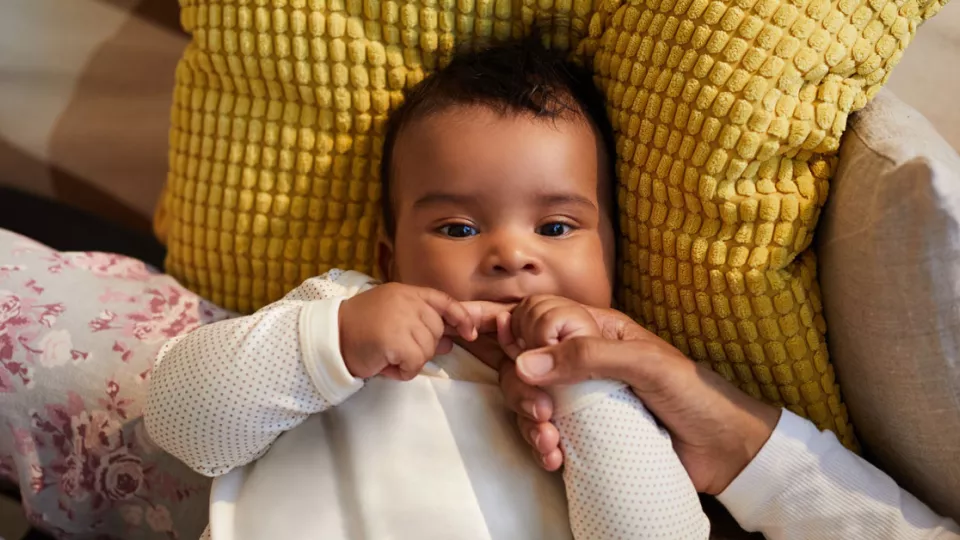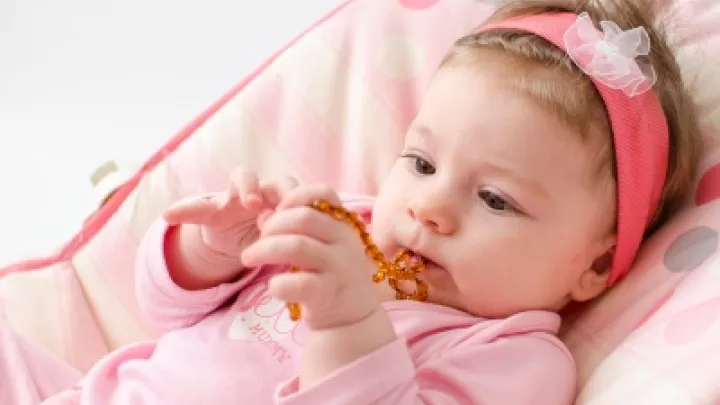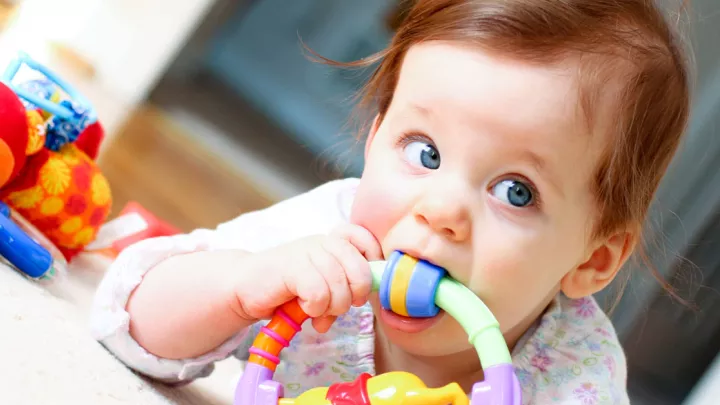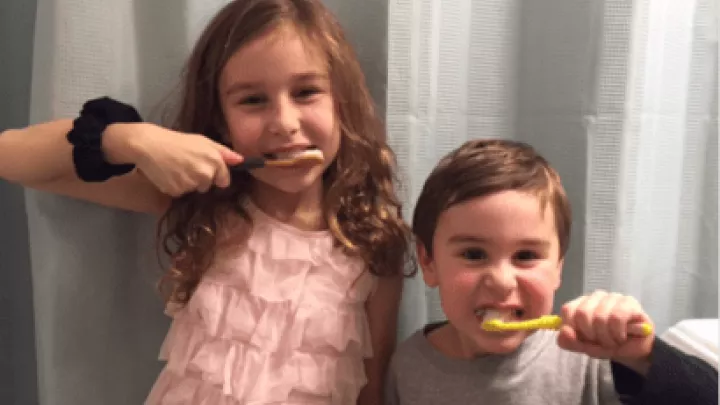
Tips for Teething Pain: What’s Safe—and What’s Not
Special thanks to Marie Lafortune, MD, Attending Physician in the Division of General Pediatrics at Children’s Hospital Los Angeles, for contributing to this article.
Teething can be tough on babies—and their parents. It hurts to have those new teeth grow in, and that can lead to a lot of crying, sleepless nights and frustration.
What can you do to make it better? Here’s what you need to know about teething, including what’s safe—and not safe—to give your baby.
When does teething start—and end?
In general, teething starts around 6 months of age, but it varies. It can begin anytime from 6 to 12 months.
Your child will be getting new teeth, off and on, for a couple of years. The two sets of front teeth—typically bottom and then top—come in first. The molars (in the back of the mouth) are the last to appear, sometime between the ages of 1 and 3 years. These tend to be more painful.
Signs and symptoms
- Fussiness and crying. Teething hurts! Your baby has good reason to be fussy, irritable and quick to cry.
- Drooling. Teething stimulates saliva—and drooling. Many babies drool a lot! There isn’t much you can do about this. Just stock up on bibs, and keep your child’s mouth and face as clean and dry as possible.
One note: Many babies drool even before their first teeth come in. Just because you see drooling doesn’t mean your baby is teething.
- Putting things in their mouth. Babies like to do this regardless, but those who are teething will often bite or gnaw on things to ease gum pain.
- Low-grade fever. Teething can sometimes cause a very mild, low-grade fever. Higher fevers—101 F or above—are not caused by teething.
Best remedies for teething pain
- Something cold. Keep a clean, damp washcloth or small damp towel in the fridge. Once it’s cold, give it to your baby to hold and gnaw on. (You can knot one end to make it easier.) This is very soothing for sore gums.
Teething rings are also a good option. They should be made of firm rubber. Put the ring in the fridge and give it to your child cold. Do not put it in the freezer—this makes it too hard and too cold.
- Massage. Teething causes gums to be swollen and tender. Using a clean finger, gently rub or massage your baby’s gums for a minute or two to relieve discomfort.
- Pain medicine. The safest choice is acetaminophen (Tylenol) for babies 2 months and older. Ibuprofen is not recommended for children until they are at least 6 months of age. Follow the directions on the label for your child’s age and weight.
- Lots of cuddling and rocking. This really does help!
What to avoid
Many products sold for teething pain don’t work—and some can even hurt your baby. Stay away from:
- Teething necklaces. The Food and Drug Administration issued a warning against these necklaces in December 2018. The beads can break off, and your child could choke on them. Plus, the necklace can get caught on something and strangle your child. (A reminder: Babies should never wear any jewelry!)
- Frozen teething rings. As noted above, these become too hard and cold and can harm your baby’s gums.
- Topical gels. Many gels were taken off the market in 2018 because they contained benzocaine, which is not safe for children under age 2. What about gels without benzocaine? It’s best to pass on these; you can’t truly be sure what’s in them. Besides, remember all that drool? Gels wash away too quickly to have much of an effect.
- Teething tablets. Some tablets contain belladonna, which is toxic in high enough amounts. There have been cases where teething tablets contained more belladonna than stated on the label. Avoid these tablets.
When to call the doctor
Teething is a normal—and luckily, temporary—part of baby and toddler life. That said, you know your child best. Be sure to talk to your pediatrician if you feel anything is amiss. Symptoms like high fevers, cough, runny nose and diarrhea are most likely not caused by teething, but by another illness. You should also talk to your doctor if your child hasn’t gotten their first tooth by 16 months of age. When in doubt, see the doctor to check it out.


